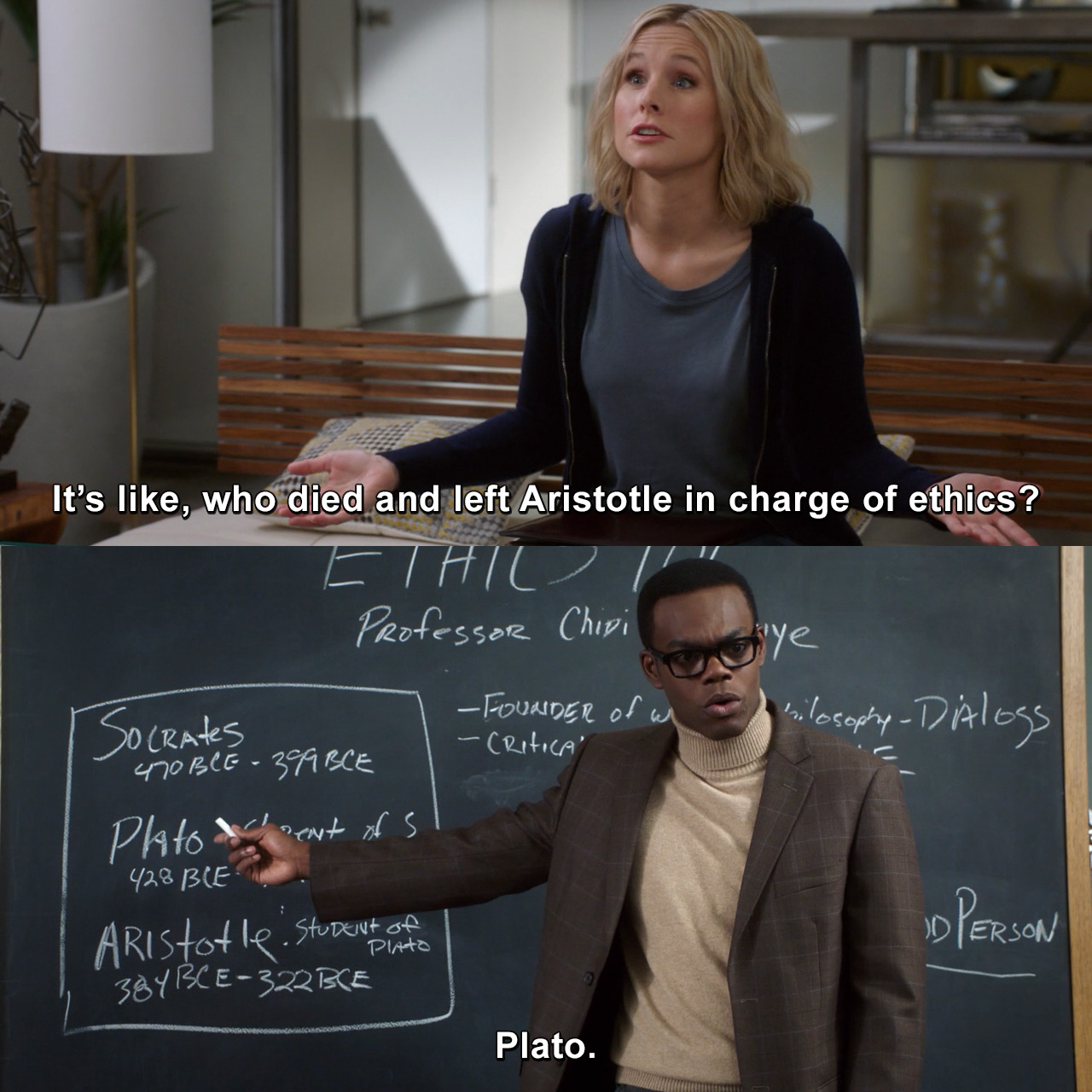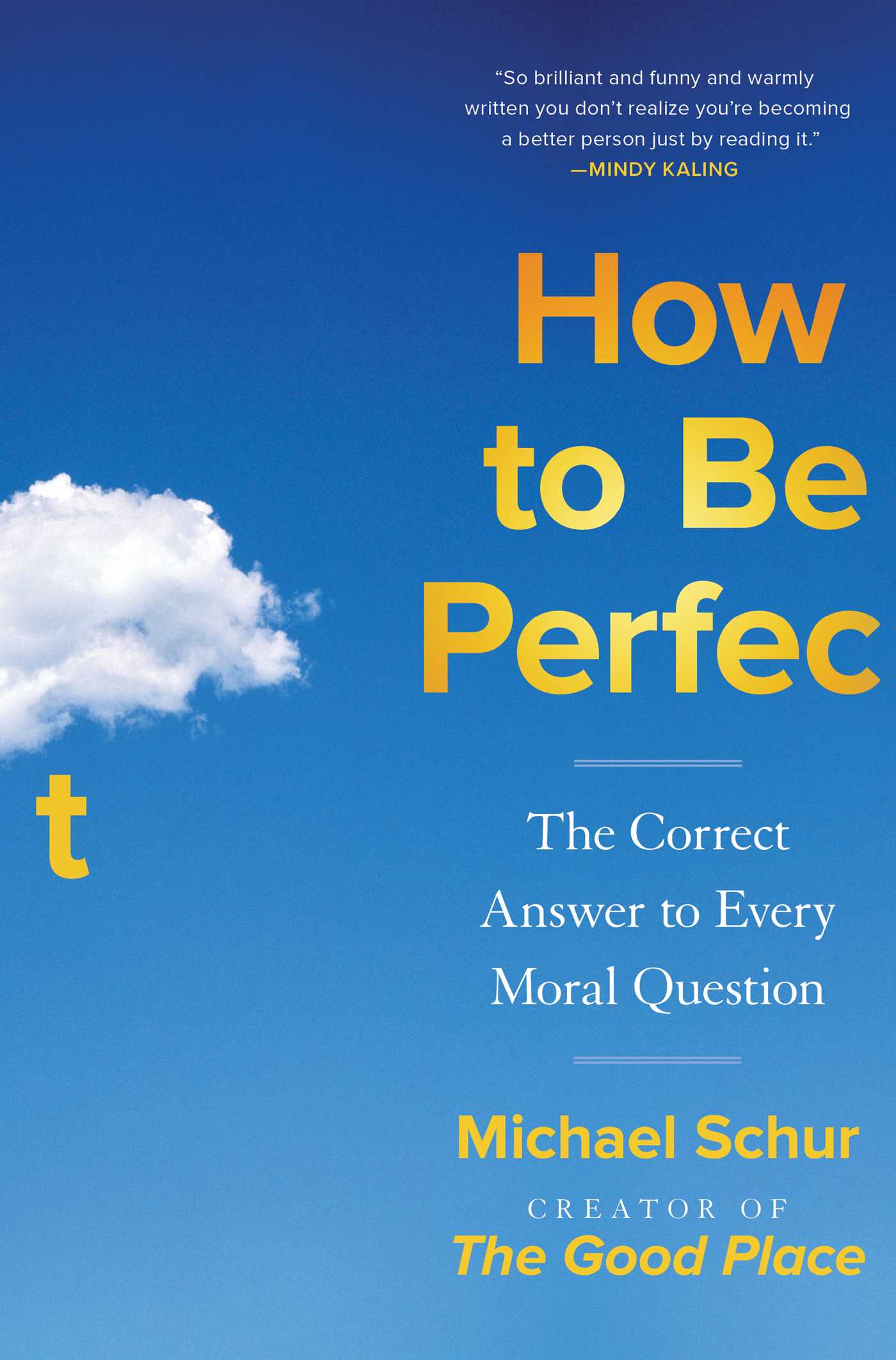
How to Be Perfect: The Correct Answer to Every Moral Question
March 9, 2022
A few months ago, in a late-night conversation with some friends, we had gotten to talk about what makes a good person, and no joke, had talked about how a lot of philosophy felt hard to learn, and I had mentioned that I wanted to learn more in a way that addressed the quandries of real life, like one of my favorite shows, The Good Place. So reading this book felt like incredible good luck.

Schur takes us through 3 main Western schools of thought as an introduction, and then proceeds to show us how these schools of thought might apply to real life moral dilemmas. He then introduces us to other schools of thought when the rules and conclusions drawn from the ones we've been introduced to before don't "feel" good enough to the dilemmas we're facing. These were some of my favorite chapters of the book, because to me, philosophy always felt to be a bit too abstract to apply to the difficulties of life. I especially enjoyed the chapter about whether it was alright to enjoy the art created by someone who is a terrible person.
I also liked reading about luck in this book, especially both as it relates to circumstances you're born with and the serendipity that occurs in ways that we don't necessarily see, especially since our society likes to extoll that it's a meritocracy. I myself have dealt with people who are in denial about luck when it comes to their successes, so reading about how it relates to trying to be a good person was gratifying.

I really, really enjoyed reading this book - it was funny and engaging while also teaching me a lot about moral philosophy. I'm sure I'll be back for rereads and highly recommend it to anyone who wants to learn more about philosophy.
A thank you to Simon & Schuster and NetGalley for the ARC.

More about How to Be Perfect here:


Title: How to Be Perfect: The Correct Answer to Every Moral Question
Author:Michael Schur
Most people think of themselves as “good,” but it’s not always easy to determine what’s “good” or “bad”—especially in a world filled with complicated choices and pitfalls and booby traps and bad advice. Fortunately, many smart philosophers have been pondering this conundrum for millennia and they have guidance for us. With bright wit and deep insight, How to Be Perfect explains concepts like deontology, utilitarianism, existentialism, ubuntu, and more so we can sound cool at parties and become better people.
Schur starts off with easy ethical questions like “Should I punch my friend in the face for no reason?” (No.) and works his way up to the most complex moral issues we all face. Such as: Can I still enjoy great art if it was created by terrible people? How much money should I give to charity? Why bother being good at all when there are no consequences for being bad? And much more. By the time the book is done, we’ll know exactly how to act in every conceivable situation, so as to produce a verifiably maximal amount of moral good. We will be perfect, and all our friends will be jealous. OK, not quite. Instead, we’ll gain fresh, funny, inspiring wisdom on the toughest issues we face every day.
